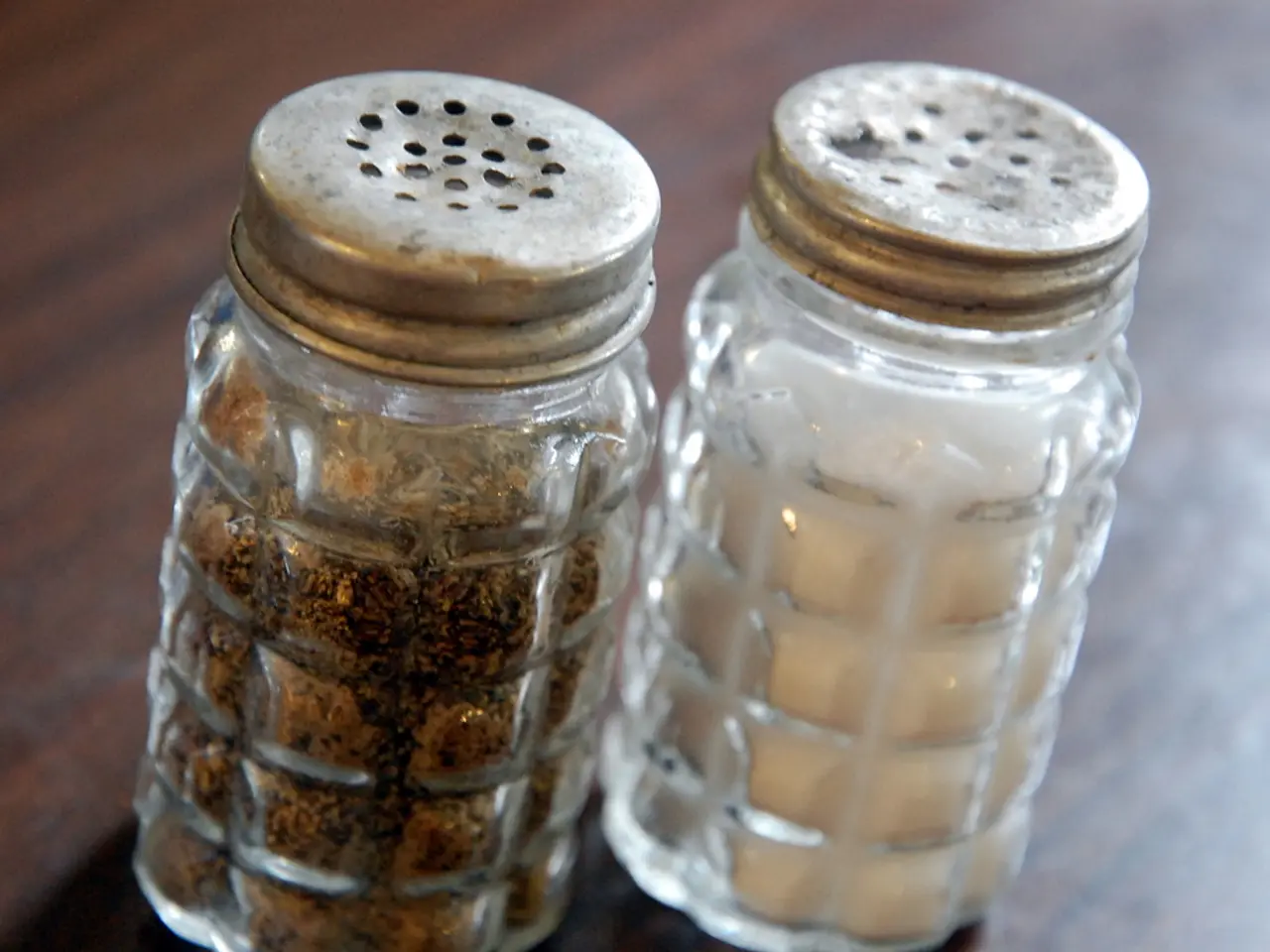Excessive Salt Intake Causes Health Risks
A balanced diet is crucial for maintaining good health, and one essential aspect often overlooked is the consumption of sodium. A registered dietitian, Julia Zumpano, cautions that a diet high in sodium can be deadly, leading to increased risks for heart disease and stroke, which are leading causes of death worldwide.
Sodium, primarily found in the blood, pulls in fluid, causing high blood pressure (hypertension) when overconsumed. This excess fluid in the bloodstream can lead to short-term swelling, particularly in the abdomen, eyes, hands, and feet. Over the long term, high sodium intake can negatively impact kidney function.
The U.S. Food and Drug Administration (FDA) recommends that healthy adults consume less than 2,300 milligrams of sodium a day, which is equivalent to about one teaspoon of table salt. This recommendation aligns with the guidelines set by the World Health Organization (WHO), which advises adults consume less than 5 grams of salt per day, approximately 2 grams of sodium daily.
The American Heart Association (AHA) advises an even lower limit of 1,500 mg per day for ideal heart health, particularly for those at risk of high blood pressure and cardiovascular disease. For individuals with specific health conditions such as kidney disease or hypertension, sodium recommendations are stricter, commonly around 1,500 to 2,000 mg per day or less to manage disease and reduce complications.
Maintaining sodium intake below these levels helps optimize cardiovascular health and reduce the risk of heart disease and stroke. Potassium works to counteract some of sodium's effects on the body, and foods high in potassium include avocados, bananas, potatoes, spinach, tomatoes, and oranges.
It's important to note that salt is not unhealthy unless consumed in excess. The body removes excess sodium through sweat and urine. However, eating too much sodium, especially in the evening, can disrupt sleep due to a spike in blood pressure and sudden urges to get a drink or pee. Higher levels of sodium do not necessarily cause increased thirst in people.
In summary, adhering to the recommended daily sodium intake for optimal health and reduced risk of heart disease and stroke varies slightly among major health organizations but generally falls within a consistent range:
| Organization | Recommended Sodium Intake per Day | |----------------------------------|-------------------------------------| | Dietary Guidelines for Americans | Less than 2,300 mg (~1 teaspoon salt) | | American Heart Association | Ideal: 1,500 mg or less | | World Health Organization | Less than 2,000 mg (5 grams salt) |
By making informed choices about our sodium intake, we can take a significant step towards maintaining a healthier lifestyle and reducing our risk of heart disease and stroke.
Embracing a balanced diet that limits sodium consumption can be pivotal for heart health, as excessive sodium may lead to hypertension, kidney issues, and potentially contribute to heart disease and stroke – major health concerns globally. The US Food and Drug Administration suggests healthy adults should intake less than 2,300 milligrams of sodium daily, which aligns with the World Health Organization’s advice of less than 5 grams of salt per day. The American Heart Association recommends an even lower limit of 1,500 mg per day for optimal heart health. Furthermore, maintaining a diet with high potassium foods, such as avocados, bananas, potatoes, spinach, tomatoes, and oranges, can counteract sodium's effects. Despite salt not being inherently unhealthy, consuming too much may disrupt sleep patterns and contribute to increased urges to urinate in the night. Consciously making smart sodium choices can greatly contribute to a healthier lifestyle and decreased risk of heart disease and stroke.




